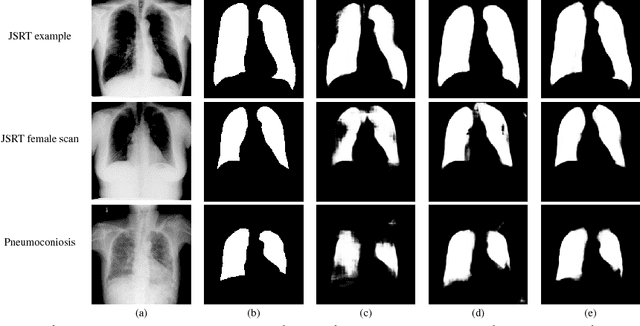Towards Continuous Domain adaptation for Healthcare
Paper and Code
Dec 04, 2018
Deep learning algorithms have demonstrated tremendous success on challenging medical imaging problems. However, post-deployment, these algorithms are susceptible to data distribution variations owing to \emph{limited data issues} and \emph{diversity} in medical images. In this paper, we propose \emph{ContextNets}, a generic memory-augmented neural network framework for semantic segmentation to achieve continuous domain adaptation without the necessity of retraining. Unlike existing methods which require access to entire source and target domain images, our algorithm can adapt to a target domain with a few similar images. We condition the inference on any new input with features computed on its support set of images (and masks, if available) through contextual embeddings to achieve site-specific adaptation. We demonstrate state-of-the-art domain adaptation performance on the X-ray lung segmentation problem from three independent cohorts that differ in disease type, gender, contrast and intensity variations.
 Add to Chrome
Add to Chrome Add to Firefox
Add to Firefox Add to Edge
Add to Edge